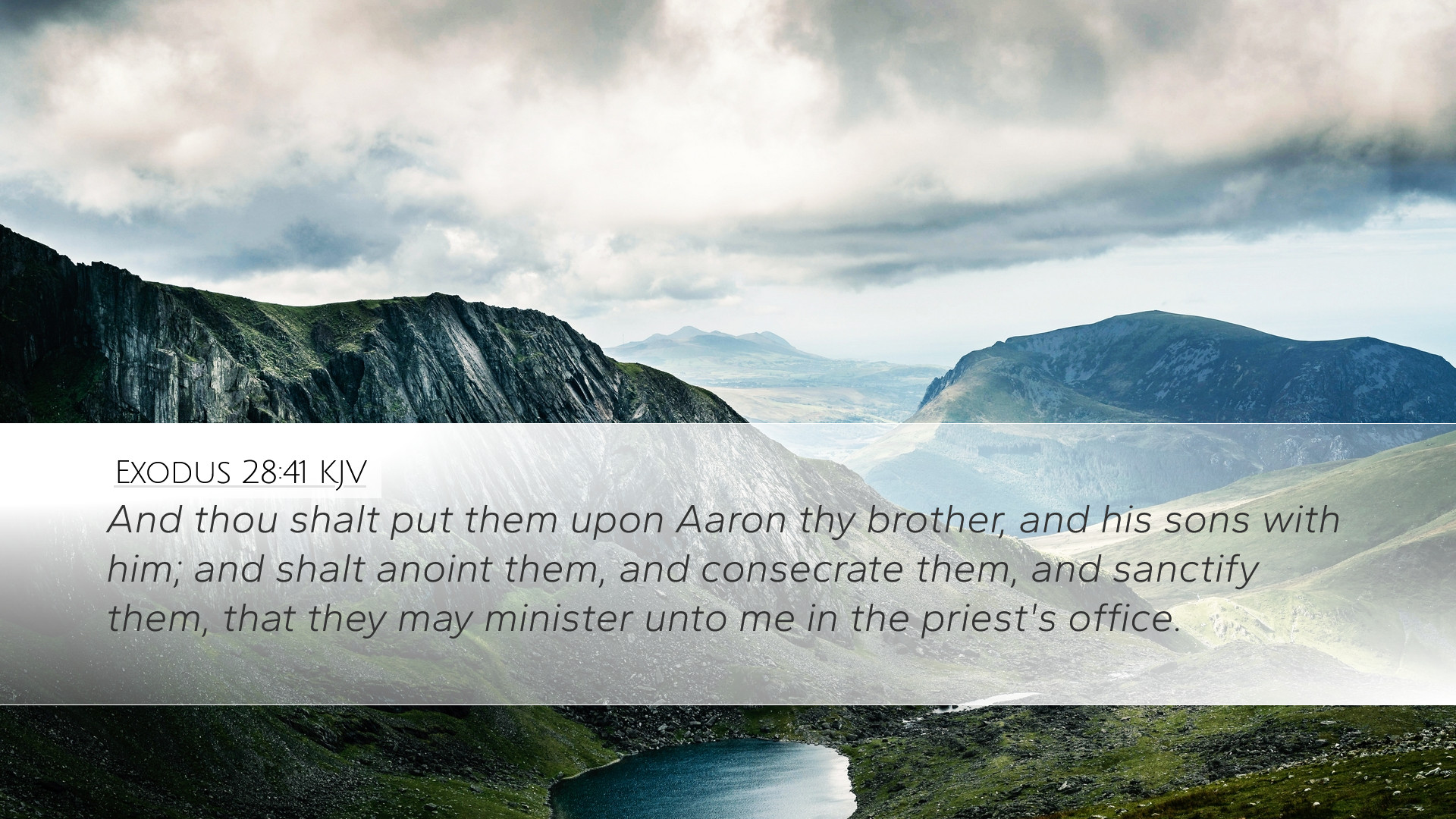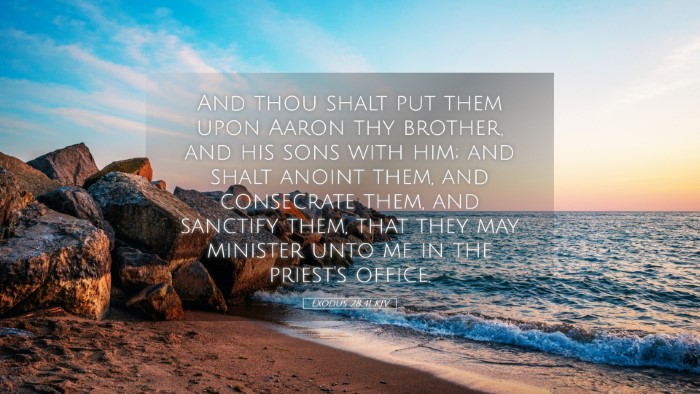Commentary on Exodus 28:41
Exodus 28:41 states: "And thou shalt put them upon Aaron thy brother, and his sons with him; and shalt anoint them, and consecrate them, and sanctify them, that they may minister unto me in the priest's office." This verse is integral to understanding the institution of the Levitical priesthood, as it marks the beginning of a distinct and sacred role within the community of Israel.
Overview of the Verse
This verse encapsulates the ceremonial responsibilities and the divine call to holiness expected of Aaron and his sons as priests. The act of anointing and consecrating signifies God's selection and equipping of leaders for His service.
Theological Significance
The directives given in this verse have profound theological implications, reflecting on themes of selection, anointing, and the necessity of holiness in service to God.
-
Divine Appointment:
Matthew Henry notes that the priests are not self-appointed; their roles come from God's direct command, which underscores the idea that spiritual leaders must be divinely called and equipped for their tasks.
-
The Role of Anointing:
Albert Barnes elaborates on the importance of anointing, connecting it with the empowerment by the Holy Spirit, echoing the practice throughout the Scriptures where anointing represents setting apart for divine service. This foreshadows the anointing of Christ and the subsequent anointing of believers.
-
Consecration and Holiness:
Adam Clarke focuses on the concept of holiness required for ministry. The term 'consecrate' portrays a state of being separated for God's purpose, highlighting the moral and ethical demands placed upon those who would serve as mediators between God and man.
Historical Context
In the historical context, these instructions were given at a pivotal moment in Israel's journey. The establishment of a priesthood was essential for maintaining the covenant relationship with God. Before this, there were patriarchal sacrifices and offerings; however, the formalization of the priestly role established a system through which the people could approach God.
Practical Implications for Today
The principles of Exodus 28:41 extend beyond ancient Israel and offer profound insights for contemporary ministry:
-
Ministry as Divine Calling:
Modern pastors and church leaders are reminded that their roles are a calling from God, requiring both preparation and ongoing commitment to holiness and service.
-
The Importance of Anointing:
The concept of anointing is a vital reminder that leaders should seek spiritual empowerment for effective ministry. Prayer, reliance on the Holy Spirit, and seeking God’s guidance are essential practices.
-
Setting Apart for God:
Clarke’s emphasis on consecration serves as a call to modern believers to pursue holiness and integrity in their lives, recognizing that they are representatives of God's kingdom.
Conclusion
Exodus 28:41 serves as a timeless reminder of the sacred nature of ministry. With its rich theological and practical applications, this verse calls all who serve in spiritual leadership to embrace their roles with reverence, seeking God’s empowerment and living lives set apart for His purposes. As pastors, students, and theologians reflect on this scripture, let them be inspired to uphold the sanctity of their calling and to lead with an awareness of the divine mandate entrusted to them.


